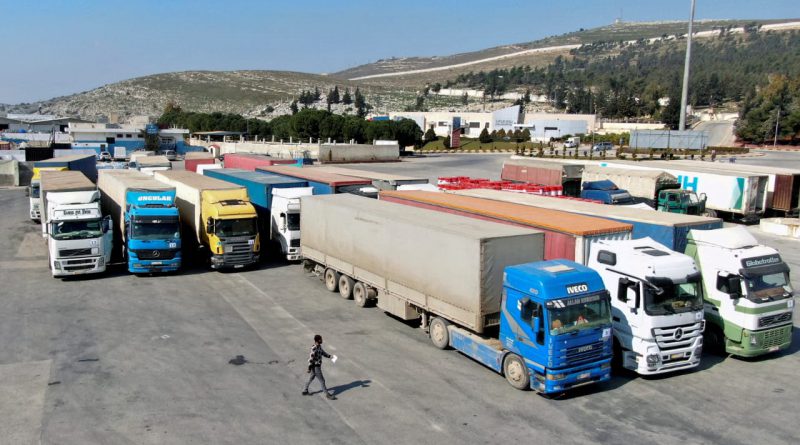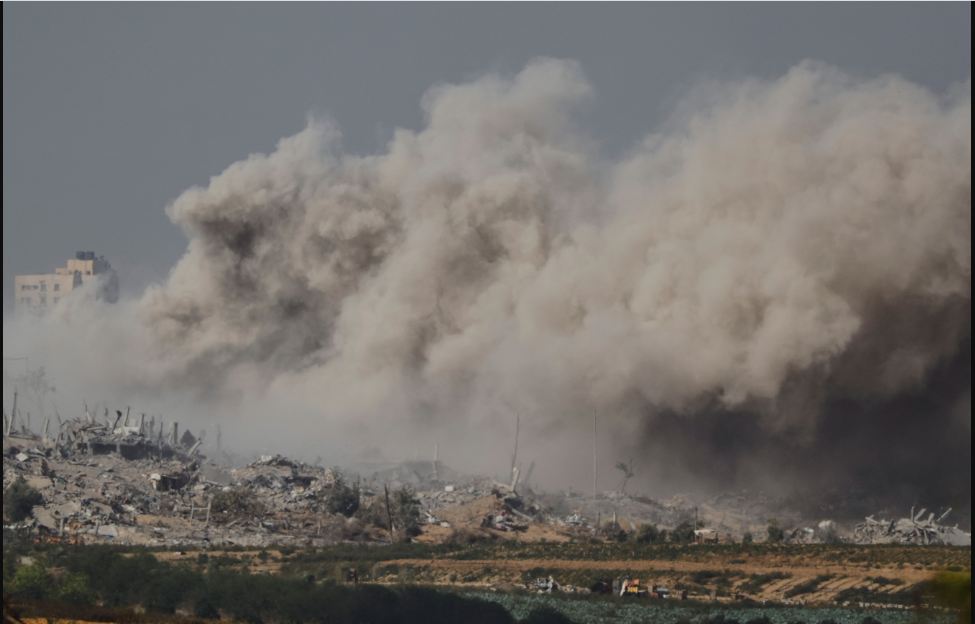Russian veto signals end of Turkey-based UN aid operation in Syria
United Nations (Reuters) – Russia on Tuesday signaled the demise of a long-running United Nations humanitarian operation in Turkey delivering aid to 4 million people in rebel-held northwest Syria after it vetoed a nine-month authorization renewal at the U.N. Security Council.
Russia then failed in its own bid for a six-month extension of the operation, which has been delivering aid including food, medicine and shelter since 2014. The Security Council approval for the aid deliveries expired on Monday.
Russia U.N. Ambassador Vassily Nebenzia suggested that the council mandate for the aid operation could not be salvaged.
After casting the veto and before the council vote on Russia’s six-month proposal, Nebenzia said: “If our draft is not supported, then we can just go ahead and close down the cross-border mechanism.
“The technical rollover, for any period of time, we’re not going to accept,” he added.
U.S. Ambassador Linda Thomas-Greenfield said the United States would continue to work with all council members to renew the aid operation and urged Russia to reconsider its position.
U.N. Secretary-General Antonio Guterres had pushed for a 12-month renewal.
Guterres was disappointed that the council had not reached an agreement and urged members “to redouble their efforts to support the continued delivery of cross-border assistance to millions of people in dire need in northwest Syria for the longest possible period,” U.N. spokesman Stephane Dujarric said.
Authorization is needed because the Syrian government in Damascus, which has close ties with Moscow, did not agree to the U.N. operation on sovereignty grounds. Security Council votes on the issue have long been contentious – in both 2022 and 2020 the mandate expired, only to be renewed a day later.
The Security Council initially authorized aid deliveries in 2014 into opposition-held areas of Syria from Iraq, Jordan and two points in Turkey. But Russia and China have whittled that down to just one Turkish border point.
Aid groups decried the Security Council stalemate.
‘Utter Cruelty’
Russia and Syria have argued that the aid operation violates Syria’s sovereignty and territorial integrity. They say more aid should be delivered from inside the country, raising opposition fears food and other aid would fall under government control.
After an earthquake killed more than 50,000 people in Turkey and Syria in February, Syrian President Bashar al-Assad allowed the United Nations to use an additional two border crossings from Turkey to dispatch aid. That approval expires on Aug. 13.
The Syrian government did not immediately respond to a request for comment on whether it would now include the Bab al Hawa crossing in its agreement with the United Nations and whether it would extend those approvals beyond Aug. 13.
“That is for them (Syria) to decide,” Nebenzia told reporters. “It’s in their hands.”
Syria’s U.N. Ambassador Bassam Sabbagh told Reuters that Damascus would assess the situation and announce its position.
Sabbagh told the council that authorization for the aid operation should only be extended for six months and criticized the text drafted by Switzerland and Brazil, saying it “did not reflect the aspirations of the Syrians.”
China abstained on the vote for the nine-month compromise renewal of the aid operation authorization drafted by Switzerland and Brazil, while the remaining 13 Security Council members voted in favor.
Only Russia and China voted in favor of Russia’s proposal for a six-month extension. Ten Security Council members abstained, and the United States, Britain and France voted against.
A resolution needs at least nine votes in favor and no vetoes by Russia, China, the United States, France or Britain to be adopted by the Security Council.
“It’s a sad moment for the Syrian people,” U.S. Ambassador Thomas-Greenfield told the council after Russia’s veto. “What we have just witnessed, what the world has just witnessed, was an act of utter cruelty.”
A violent crackdown by Assad on peaceful pro-democracy protesters in 2011 led to a civil war, with Moscow backing Assad and Washington supporting the opposition. Millions of people have fled Syria with millions more internally displaced. Fighting has abated with Assad back in control of most of Syria.



